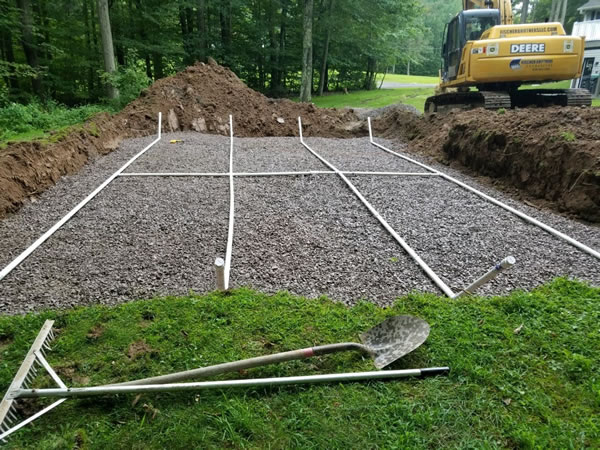
While homeowners often focus on the visible components of their septic systems, the role of soil beneath the surface is equally critical. The type and quality of soil can significantly impact the efficiency and longevity of a septic system.
The ability of soil to absorb and filter wastewater is a key factor in the functionality of a septic system. Soil permeability refers to how quickly water can move through the soil. In areas with high permeability, such as sandy soils, water may move too rapidly, risking insufficient treatment. Conversely, in areas with low permeability, like clay soils, water absorption may be slow, potentially leading to waterlogged conditions around the septic system.
Different soil types interact with septic systems in distinct ways. Sandy soils are generally more permeable, allowing water to move quickly. This can be advantageous for drainage but may necessitate additional treatment to remove contaminants. Clayey soils, on the other hand, have lower permeability, leading to slower absorption. Understanding the soil type on your property is crucial for making informed decisions during septic tank installation and maintenance.
During the septic tank installation process, professionals assess soil characteristics to determine the system's suitability. Soil tests help identify the soil's texture, structure, and drainage capacity. Based on this information, the septic tank is placed in a location that allows for optimal wastewater treatment. A professional septic company will conduct thorough soil evaluations to ensure proper installation.
Over time, solids accumulate in the septic tank, requiring regular septic tank pumping to prevent clogs and system failures. The frequency of pumping depends on factors such as household size, water usage, and tank size. In areas with fast-draining soil, more frequent pumping may be necessary to prevent the buildup of solids that could harm the soil and drainage field.
In areas with high water tables or heavy rainfall, soil saturation can pose challenges for septic systems. Saturated soil limits the absorption of wastewater, leading to backups and potential system failure. Professional septic companies can assess the impact of soil saturation and recommend solutions, such as installing raised drain fields or improving soil drainage.
Soil-related issues can manifest over time, necessitating septic tank repair and maintenance. Common problems include clogs, leaks, and structural damage to the tank or pipes. Timely repairs are essential to prevent further damage to the soil and surrounding environment. A reputable septic company can conduct thorough inspections and implement necessary repairs to keep the system functioning optimally.
Regular inspections and soil testing are integral components of septic system maintenance. Professionals from Rooter Septic Services can assess the condition of the soil, identify any signs of stress, and recommend appropriate measures. Routine testing ensures that any potential issues are addressed proactively, preserving the long-term functionality of the septic system.
The relationship between soil and septic systems is a critical aspect of wastewater treatment and overall system performance. Collaborating with a professional septic company ensures that soil-related issues are identified early and addressed effectively, preserving the health of the septic system and the surrounding environment. By embracing informed decisions and proactive maintenance, homeowners can enjoy a well-functioning septic system that stands the test of time.